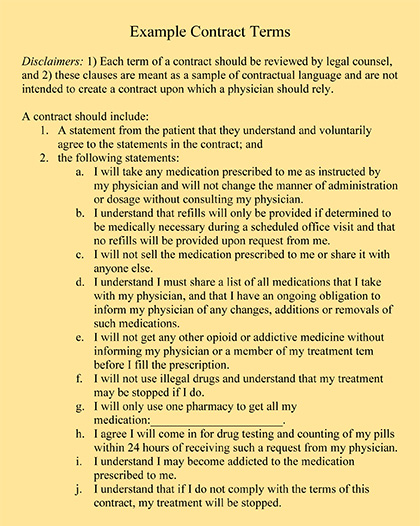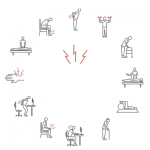- The risk of prescription opioid misuse is minimized;
- The harmful effects associated with opioid use are communicated to the patient;
- A deterrent to self-medicating and drug-seeking behavior is provided; and
- Consistent medical care is provided, irrespective of race or financial status.
Harmful Effects
Despite the contract’s best intentions, many providers find opioid contracts do more harm than good. There is questionable evidence regarding whether the agreements actually reduce opioid misuse in patients with chronic pain. Additionally, many patients complained their stress and anxiety increased as a result of the agreement due to concerns associated with fulfilling its terms.
Some patients who claimed they had no substance abuse issues feared a mistake would lead to their urine sample testing positive for drugs it should not or testing negative for drugs for which it should test positive. These patients feared they would lose the pain medication they have come to rely on.
Further, some physicians and patients feel the agreements cause the physician–patient relationship to break down. Instead of a way to carefully navigate a complicated medical problem, the contract becomes the foundation for treatment, and if violated, the treatment abruptly ends.
Improving the Effect of Opioid Agreements
Whether a physician agrees with the use of opioid agreements or is legally obligated to enter into them under state law, certain measures can be taken to enhance the positive effect of the agreements. These measures include:
- Carefully drafting the agreement using plain language that is easily understood by the patient. Forcing patients to sign a document loaded with legalese can negate the whole purpose of the agreement;
- Taking time to calmly walk the patient through the terms of the agreement so he or she understands the expectations and is aware of all actions that could impact treatment;
- Periodically reviewing the terms of the agreement with each patient to confirm they continue to understand and abide by the expectations and responsibilities agreed to; and
- For patients violating the terms of the agreement, weaning the patients off the medication, if permitted, instead of completely cutting them off.
 Steven M. Harris, Esq., is a nationally recognized healthcare attorney with McDonald Hopkins LLC. Contact him via email at [email protected].
Steven M. Harris, Esq., is a nationally recognized healthcare attorney with McDonald Hopkins LLC. Contact him via email at [email protected].



